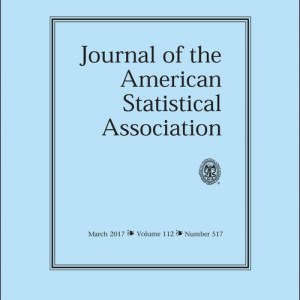
Ikefuji, M., Laeven, \RogerJ.A.\, Magnus, \JanR.\ and Yue, Y. (2022). Earthquake Risk Embedded in Property Prices: Evidence From Five Japanese Cities Journal of the American Statistical Association, 117(537):82--93.
-
Affiliated authors
-
Publication year2022
-
JournalJournal of the American Statistical Association
We analyze the impact of short-run (90 days) and long-run (30 years) earthquake risk on real estate transaction prices in five Japanese cities (Tokyo, Osaka, Nagoya, Fukuoka, and Sapporo), using quarterly data over the period 2006–2015. We exploit a rich panel dataset (331,343 observations) with property characteristics, ward attractiveness information, macroeconomic variables, and long-run seismic hazard data, supplemented with short-run earthquake probabilities generated from a seismic excitation model using historical earthquake occurrences. We design a hedonic property price model that allows for subjective probability weighting, employ a multivariate error components structure, and develop associated maximum likelihood estimation and variance computation procedures. Our approach enables us to identify the total compensation for earthquake risk embedded in property prices, to decompose this into pieces stemming from short-run and long-run risk, and to distinguish between objective and subjectively weighted (“distorted”) earthquake probabilities. We find that objective long-run earthquake probabilities have a statistically significant negative impact on property prices, whereas short-run earthquake probabilities become statistically significant only when we allow them to be distorted. The total compensation for earthquake risk amounts to an average –2.0% of log property prices, slightly more than the annual income of a middle-income Japanese household. Supplementary materials for this article, including a standardized description of the materials available for reproducing the work, are available as an online supplement.